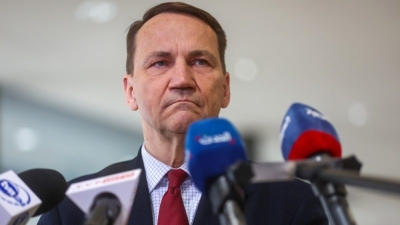Digital Services Act: Germany proposes creation of advisory board

To make German law fit for the Digital Services Act (DSA), Berlin proposed an advisory board that monitors the EU regulation’s implementation and enforcement, according to a draft of the implementation law seen by EURACTIV.
The DSA is a landmark EU regulation that introduces responsibilities for all digital players, with a particularly tight regime for very large online platforms. It entered into force in November.
EU member states are currently in the process of anchoring the DSA in their national legislation by allocating the responsibilities of the national regulators and determining the fines for potential breaches of the digital rulebook.
The German proposal for the establishment of an advisory board came somewhat as a surprise, as it was not stipulated in the EU regulation.

Commission announces first platforms to fall under EU digital rulebook’s stricter regime
The European Commission identified on Tuesday (25 April) 19 online platforms and search engines that must comply with its more rigorous rules for digital services.
The EU has recently adopted the Digital Services Act (DSA), a flagship regulation introducing responsibilities for …
Advisory board
According to the Digital and Transport Ministry’s draft amendment bill, the advisory board will consist of “ten representatives of science, civil society, including consumer associations, and business representatives.”
The advisory board is to serve as a coordinating body for enforcing the regulation, raising scientific questions and ensuring the effective and uniform implementation of the DSA.
According to the bill, the board should also assist the Digital Services Coordinator, the national authority that will be leading the enforcement of the DSA at the national level. This role will likely be entrusted to the Federal Network Agency (BNetzA), Germany’s telecom regulator.
Dirk Freytag, the president of the association of digital companies BVDW, told EURACTIV the advisory broad was a welcome idea since it is “intended to support the Federal Network Agency, which has not yet been active in this field, with expertise, knowledge and classification in this important task for the digital economy.”
However, the board’s composition has proved more controversial, with civil society calling to be equally represented alongside the industry.

Germany’s push for tighter tech regulation
German lawmakers are making the case for tighter obligations for online platforms in the upcoming EU legislation, as they fear that it could produce weaker rules than their current national framework, EURACTIV Germany reports.
National legal framework
As an EU regulation, the DSA will be directly applicable into the national legal frameworks of the member states, which will have to repeal overlapping legislation like the Network Enforcement Act (NetzDG) and the German Telemedia Act (TMG) by 17 February 2024.
At the same time, many in Germany see the DSA as a softer version of the NetzDG, taking away power from their hands. The German law allowed Berlin to directly supervise all providers, including big online giants based in Ireland.
By contrast, under the DSA, German regulators will not be able to issue fines directly. They will have to initiate cooperation with the Digital Services Coordinator of the country where the company has its European headquarters or the EU Commission if the company is a very large online platform.
Another significant change relates to the arbitration boards. While Germany systematically solves its arbitration cases under the NetzDG, under the DSA, these will be solved individually, and private providers will be obliged to participate in dispute resolution.
On top of that, the Federal Network Agency has been instructed to set up a corresponding out-of-court dispute resolution body, which means each party only bears the costs of participating in the procedure – a cheaper option than taking legal action.
Federal vs state structure
Moreover, the NetzDG centralised digital rules in the hands of the federal government in several key areas.
The DSA does not solve the conflict of the distribution of tasks in Germany between the states and the federal government, as the DSA leaves the role of the state authorities largely untouched. In the NetzDG on the other hand, states ceded their role to the federal government – a development that is now reversed, leaving the regulation of responsibilities unclear.
At the same time, cross-border cooperation among Digital Services Coordinators could be limited by differences in national procedural law. The need for harmonising such rules at the EU level has been underlined in the data protection field.
Read more with EURACTIV




